Grainger, P :: Children's March (Over The Hills And Far Away)
-
ComposerGrainger, P
-
InstrumentationWoodwind Quartet
-
PublisherMusicians Publications [WR215]
-
EditorHolcombe Jr, Bill (arr)
-
Orchestrationfl, cl, ob, bsn
-
Includes CD or Audio DownloadNo
-
ClassificationNot Applicable
-
GenreUndefined
Grainger, P
Musicians Publications presents Percy Grainger’s ‘Children's March (Over The Hills And Far Away)’ arranged for woodwind quartet by Bill Holcombe Jr. Scored for flute, oboe, clarinet, and bassoon, this arrangement also includes an optional bass clarinet part to replace the bassoon when necessary. This quartet is advanced in difficulty.
'Although Percy Grainger was born an Australian, he spent the majority of his professional life in England and America. He was an only child, and when his parents separated in 1890, he developed an inextricable bond with his mother that lasted until her death in 1922. She traveled and lived exclusively with Percy, acting as his caretaker, business manager, and closest confidant.Rose Grainger was an accomplished pianist, and young Percy’s earliest musical studies were kept within the family. He showed tremendous promise at the keyboard, and by 1895, he had reached the requisite age of thirteen to enroll in a conservatory. Rose and Percy left Australia for Germany where he was admitted to the Hoch Conservatory in Frankfurt am Main. After his graduation, mother and son relocated to London in 1901 and Grainger began his career as a concert pianist in earnest. During this time he also composed feverishly and began to take particular interest in the native folk songs of his new home. In 1905, he set about in Brigg, Lincolnshire, on the first of what would become countless trips to the English countryside to collect and document the tunes often sung by the native residents. First on paper, and then with the newly developed wax cylinder, Grainger eventually documented more than 700 English and Danish folksongs. He delighted in the nuances and 'imperfections' rendered by each singer and arranged dozens of these tunes for various ensembles. In what would become the defining feature of his work, he not only preserved the tunes, but also the irregular meters and unique interpretations of each singer who first shared the music with him.
After the outbreak of World War I, Grainger moved to New York in 1914 and called America his home for the remainder of his life. He made a triumphant American solo debut in 1915, playing a concert of his own works to a sold- out audience in Aeolian Hall. Celebrated tenor Enrico Caruso was in attendance along with several notable critics, and Grainger was hailed as a modern genius at the keyboard. The Evening Post reported that '...in less than half an hour he had convinced his critical audience that he belongs in the same rank as [Ignacy Jan] Paderewski and [Fritz] Kreisler, sharing their artistic abilities, and yet as unique as they are, something new and sui generis. The audience was stunned, bewildered, delighted.'
Despite his burgeoning success in America, in 1917 Grainger decided to join the U.S. Army in support of the war effort. He served with the Coast Artillery Band until 1919, playing both oboe and saxophone (which he had taught himself to play, among many other instruments). This was Grainger’s first true experience with a concert band, and he was immediately taken with the unique sound of the ensemble. This encounter proved to be the beginning of his long and fruitful relationship with the wind band, resulting in dozens of works that have become the cornerstone of the ensemble’s repertoire. In 1918, the same year he attained his U.S. citizenship, he composed his first original work for band, titled 'Children’s March, Over the Hills and Far Away.'
Most of his works from this period were built upon the folk tunes Grainger had so diligently collected, and the melodies of Children’s March seemingly spring from the same source. However, the work is built entirely upon original material and makes full use of the sonorous capabilities of the band, with special attention given to the double reeds, saxophones, and piano. In fact, Children’s March is believed to be the first original work for concert band with an integrated piano part, complete with the unusual instruction at the very end of the piece that the player hit a string inside the instrument with a marimba mallet. The cheerful romp is dedicated to Grainger’s 'playmate beyond the hills' (whom the composer never identified by name) and was premiered on June 6, 1919, by the Goldman Band with the composer conducting.'
- The President's Own United States Marine Band, 2016
-
ComposerGrainger, P
-
InstrumentationWoodwind Quartet
-
PublisherMusicians Publications [WR215]
-
EditorHolcombe Jr, Bill (arr)
-
Orchestrationfl, cl, ob, bsn
-
Includes CD or Audio DownloadNo
-
ClassificationNot Applicable
-
GenreUndefined
All online purchases greater than $200 (before tax) are eligible for free shipping within the US. (Some Exceptions apply.) Online purchases over $200 being shipped to locations outside the United States do not qualify for free shipping.
Items returned from a purchase utilizing the free shipping offer that brings the original invoice under $200 will result in the original shipping charge being re-applied.
Once shipment has reached its destination according to the shipping carrier tracking information selected, Carolyn Nussbaum Music Company is no longer responsible for the package.
*Please note that some items may vary slightly from the pictures on our website as manufacturers make changes to their products.
We accept Visa, Mastercard, and Discover for online purchases up to $10,000.
You may also assemble your order online and pay offline using the "Offline Payment" payment method during the checkout process. In this case, once you submit your order, you will be contacted via phone or email for payment details before your order is processed. For offline orders we accept personal checks, bank checks, money orders, or travelers checks, with other legal tender acceptable only per arrangement.














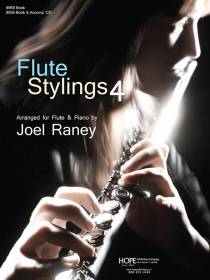
![Mozart, WA :: Eine Kleine Nachtmusick [A Little Night Music]](http://www.flute4u.com/var/images/product/262.280/P/700000000MPWT129_d.jpg)
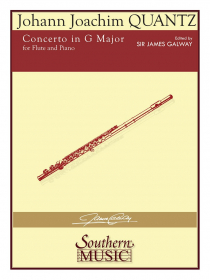

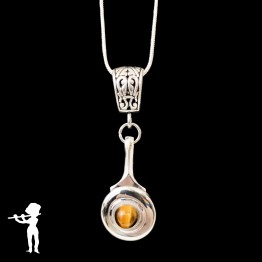


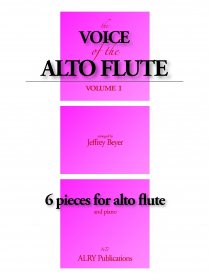
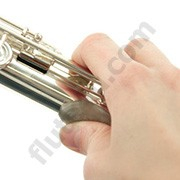
![McMichael, C :: A Gaelic Tiodhlac [A Gaelic Offering]](http://www.flute4u.com/var/images/product/262.280/FQ15__83053.1343696297.1280.1280.jpg)

